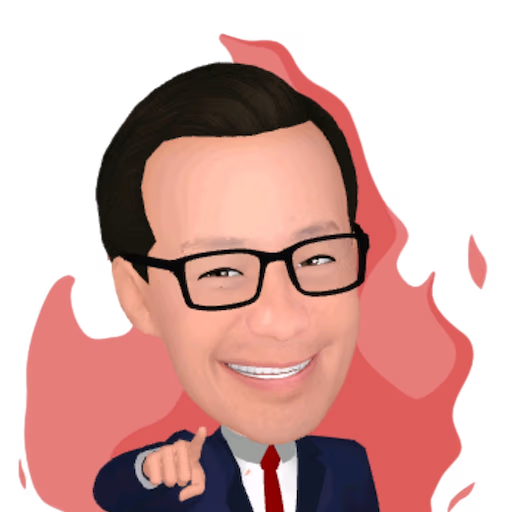AI Summary
Economist Tyler Cowen argues that AI is rapidly outperforming human experts in many fields, demanding a shift from competing against AI to collaborating with it. This "Great Humbling" devalues traditional knowledge and elevates skills like AI "training" and strategic orchestration, creating unprecedented opportunities for individuals and reshaping education and geopolitics, while also extending human lifespans.
Three years ago, economist
Tyler Cowen asked his phone a simple question: "Can you say that sentence back to me in Mayan?" What happened next changed his entire worldview. The AI didn't just respond—it schooled him, explaining that Mayan isn't a single language but a family of over 30 distinct languages, then proceeded to translate his request into Yucatec Maya with scholarly precision.
"That is why for the last three years I feel like an idiot," Cowen recently told students at Universidad Francisco Marroquín in Guatemala. But here's the twist: feeling like an idiot might be exactly where you want to be right now.
The Great Humbling: When AI Outsmarts the Experts
Cowen's story isn't unique. Across every field that deals with information, ideas, or analysis, professionals are discovering that AI systems consistently outperform them. The models pass bar exams that would stump most lawyers. They ace medical licensing tests that represent years of study. They diagnose patients with better accuracy than human doctors, and crucially, they do it with superior bedside manner.
This isn't science fiction. It's happening right now, in your pocket. That $20-per-month AI subscription gives you access to diagnostic capabilities that surpass what billionaires could access just a few years ago. Need legal advice? Upload your contract. Worried about your dog's health? Take a photo and ask. The AI will guide you through complex retirement paperwork that would cost hundreds in legal fees.
But here's what makes this revolution different from every other technological shift: the pace of improvement is breathtaking. In one year, these systems jumped from an IQ of 90 to 135. They're teaching themselves, grading their own tests, and improving at speeds no human can match.
The Skills Gap That Isn't
If you're feeling overwhelmed by the thought of mastering AI, here's the surprising good news: nobody else has either. This technology is so new that even the experts are making it up as they go along. The gap between knowing nothing and being at the frontier is smaller than you think.
Cowen estimates that with dedicated effort, most people can reach the cutting edge of AI usage in just two to three months. The key insight? Working with AI isn't like programming a computer, it's like training a dog or horse. You need to understand an alien intelligence that mostly wants to help you but doesn't think like you do.
The people who will thrive in this new world aren't necessarily the ones with the highest grades or the most traditional credentials. Being smart and following instructions—the old recipe for success—has been dramatically devalued. What matters now is your ability to guide, direct, and collaborate with artificial intelligence.
The Great Unbundling of Expertise
Traditional career paths are about to become as obsolete as typewriters. Cowen, who has spent 50 years building expertise in economics, acknowledges that an AI would likely beat him in a head-to-head economics competition. But instead of despairing, he's adapting.
He's traveling more, giving talks in person—something AI can't replicate. He's changed his reading habits, using AI to create customized learning experiences instead of plowing through dozens of books. He's rethinking what kinds of books people will still want from human authors when AI can generate content on demand.
The future workplace won't be about competing against AI—it'll be about orchestrating it. Your job will be to guide these systems, catch their mistakes, and know when to double-check their work. The most valuable skill won't be what you know, but how well you can collaborate with artificial intelligence.
One Person, Billion Dollar Company
Sam Altman, CEO of OpenAI, predicts that soon we'll see billion-dollar companies run by a single person and a team of AIs. This isn't hyperbole—it's the logical conclusion of AI's exponential capabilities. Small teams will be able to accomplish what once required large organizations.
This creates unprecedented opportunities for individual entrepreneurs. You could potentially run a research center with two or three people that has the impact of a much larger institution. The optimal scale for many businesses is shrinking, while individual leverage is exploding.
But this also means traditional job security is disappearing. The mere fact that you're smart and got good grades matters much less than it used to. What matters is whether you can be a good "AI trainer"—someone who can get these systems to produce excellent results.
The Global AI Chess Game
While individuals figure out how to work with AI, nations are making choices that will reshape geopolitics for decades. There are essentially two major AI ecosystems emerging: American and Chinese. Smaller countries like Guatemala will have to choose which system to integrate into their government, education, and infrastructure.
This choice goes far beyond technology, it's about digital sovereignty. Pick the American system, and you're linked to the United States in ways that echo historical colonial relationships. Choose Chinese AI, and you're in Beijing's sphere of influence. For countries like Guatemala, with strong ties to the US, the choice seems predetermined, but that doesn't make it less consequential.
Europe, meanwhile, is struggling to compete in this new landscape. Regulatory approaches that hinder tech entrepreneurship have left European countries dependent on either American or Chinese AI systems, raising questions about digital independence.
The Education Revolution That's Already Here
Universities are grappling with a fundamental question: Is using AI cheating, or is not using it educational malpractice? Cowen has chosen his side. In his classes, students must use AI and are graded on how well they manage it to produce quality work.
This approach recognizes a uncomfortable truth: students are already ahead of their professors when it comes to AI adoption. The faculty, set in their ways of writing papers and conducting research, are often the ones who need to learn from their students.
The implications extend far beyond homework assignments. In Kenya, despite being a relatively poor country, excellent internet infrastructure means that anyone with a mobile phone can access world-class education in any language. Free AI systems like DeepSeek are making quality education accessible to people who could never afford traditional alternatives.
Living to 100 in the Age of AI
Here's a prediction that might change how you think about your career: you're probably going to live much longer than you expect. Cowen suggests that many people currently young can expect to live close to 100 years, as AI accelerates medical research and helps solve problems like cancer.
This longevity bonus means whatever education and skills you acquire now will need to serve you for potentially 15-20 more years than previous generations experienced. It also means the world will have many more elderly people, creating both opportunities and challenges that societies have never faced before.
The acceleration of scientific discovery through AI could solve major mathematical theorems, advance biomedical research, and potentially cure diseases like Alzheimer's. But the order in which these breakthroughs arrive will significantly shape society's adaptation.
The Two Paths Forward
As this transformation unfolds, Cowen sees two distinct paths emerging. The first is the path of greater impact and leverage—learning to work with AI to accomplish more than ever before. People on this path will become wealthier and more influential than they ever imagined possible.
The second is the path of comfortable passivity. AI will answer all your questions and handle many tasks, making it easy to become intellectually lazy. Some people will choose this route, potentially knowing less and having less impact as a result.
There's also the crucial choice between learning to work with AI versus trying to compete against it. Cowen's prediction is stark: if you compete against AI, you'll probably lose. The exceptions are fields requiring physical presence or skills that can't be digitized—think professional sports or hands-on trades.
Cowen's final message is both warning and encouragement: "If you're not a bit scared by the AI, you've been asleep." This fear isn't weakness, it's recognition that we're living through a transformation as significant as the industrial revolution, but compressed into years rather than decades.
The key is channeling that fear into action. Learn to work with AI systems. Experiment with different approaches. Accept that you'll feel incompetent sometimes, that's not a bug, it's a feature. The AI revolution rewards those who embrace discomfort and adapt quickly over those who cling to old certainties. The technology itself isn't the threat, the threat is falling behind while others race ahead.
The future belongs to those who feel like idiots today but keep learning anyway. In a world where AI handles routine expertise, human judgment, creativity, and the ability to work with these systems become the most valuable skills of all.
Recent Posts












